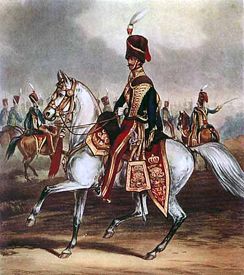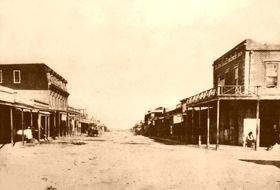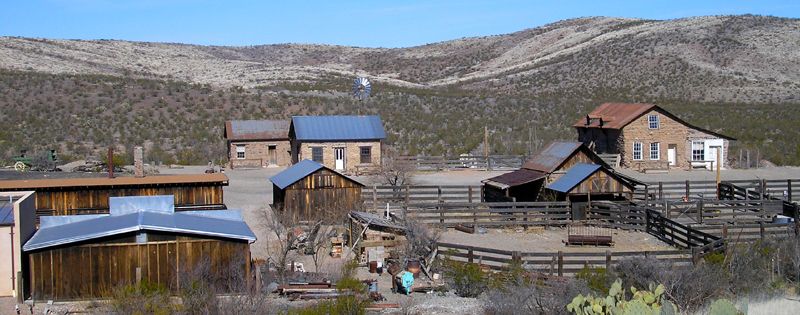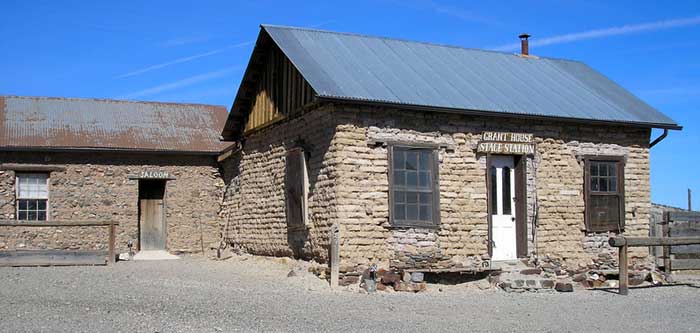
Russian Hussar.
Claiming to be a Russian Noble, William Tattenbaum was a colorful character, prone to tall tales, so most people. However, they believed he was Russian, put little stock into his claims that he was the son of a wealthy Russian aristocrat, the Countess Telfrin.
Taking on the nickname “Russian Bill,” he also claimed to have been an officer in the Czar’s exclusive Imperial White Hussars. He explained that he left Russia because he would face an embarrassing court-martial for striking a superior officer.
Bill dressed like a “dandy,” was immaculately clothed, carried the best pistols, and paid particular attention to his curly blonde hair and mustache. He was obviously well educated, spoke four languages, and attempted to discuss art, literature, and science with the very few he came into contact with, and who could converse on such a level.
Though he looked and talked the part of a noble, no one believed him, chalking his talk up to tall tales or downright lies.
Bill made his way to New Mexico, where he hooked up with the likes of the San Simon cowboys, sometimes referred to as the Clanton Gang, but more often called the “the cowboys.” Notorious rustlers in southern New Mexico and Arizona, they stole cattle from Americans and sold them in Mexico and vice versa. They were also involved in stagecoach robberies and other thieving practices along the border.
Though it is known that he spent time with some of the most illustrious characters in the west – people like the Clantons and “Curly Bill” Brocious – many believe that he was little more than an “errand boy” who amused the tough element. Tombstone, Arizona, citizens saw him as a strange eccentric, and he was often made the butt of humor. During his time with the “cowboys,” he made the acquaintance of Sandy King, a hard-drinking gunman with a penchant for barroom brawls. Though no pair could have been more different, they became friends. Later, when King left Tombstone for Shakespeare, New Mexico, Russian Bill followed him, and the two began to rustle cattle.
King quickly made himself known in Shakespeare as the town bully, and on one occasion, when King got into an argument with a storekeeper, he shot off his index finger. King was hauled to jail. In the meantime, Russian Bill was out rustling cattle, and obviously not a talented thief, he was caught red-handed on November 9, 1881, and was tossed in the pokey with his friend Sandy King.
Acting swiftly, Russian Bill was tried by a vigilance committee that found him guilty and sentenced him to be hanged. When one of the members proposed that Sandy King also be hanged on the charge of being “a damned nuisance,” the committee agreed. Before the night was over, they dragged the pair from the jail into their makeshift courtroom in the dining hall of the Grant Hotel.
In his own defense, King pointed out that others had committed much worse crimes than he, who had not been punished, citing the recent case of Bean Belly Smith, who had shot Ross Woods in a quarrel over the last egg in the house. The vigilance committee, however, was unsympathetic. As the lynch men threw the hanging ropes over the ceiling rafters, Russian Bill begged for his life. On the other hand, Sandy King requested a glass of water because “my throat is dry after talking so much to save my life.” After King drank the water, nooses were placed over their necks, and they were pulled up and left hanging until they were dead.
The next morning, when the stage stopped at the hotel, and the passengers disembarked for breakfast, the dead men were still dangling from the beam, a message to all that Shakespeare would not tolerate bad characters.
When the news of Russian Bill’s death reached Tombstone, some people were upset that the seemingly harmless and amusing man had met such a cruel fate. Two years later, they would be even more upset when a gentleman acting on behalf of one Russian Countess, Telfrin, showed up in Tombstone looking for her long-lost son, William Tattenbaum. Word was soon sent back to Russia that the Countess’ son had died by suicide, sparing her the even more grizzly facts of his death.
Newspaper Account:
September 23, 1883, New York Times, The Story of Russian Bill – How the Shakespeare Citizens Got Rid of a Bad Gang
His looks would have attracted attention anywhere, but dressed in the fancy cowboy garb, he was particularly noticeable. His clearly cut features, long, drooping mustache, and curly blonde hair, which fell to his shoulders, made Russian Bill an object of special interest to strangers. Three years ago, when the writer first saw him, Russian Bill was known through southwestern New Mexico as one of the San Simon “rustlers,” a gang of 30 or 40 outlaws that made periodical raids through western Arizona, northern Mexico, and southern New Mexico, stealing cattle and horses and driving them to the San Simon Valley, where they were kept until an opportunity offered itself to dispose of them.
When not otherwise engaged, the “rustlers” sought amusement in the frontier towns and held the inhabitants in a state of terror by their deeds of reckless daring. Russian Bill was a man of good education; he spoke four languages fluently and delighted whenever there was an opportunity to discuss literature. Science, or art. Of his past, nothing was known, save that he was from Russia, and, as it would have been resented as an insult by any of the rustlers to have asked questions about so delicate a subject, no one attempted to discover why a man of such mental attainments had joined a band of outlaws.
No crimes outside of cattle stealing were known to have been committed by Russian Bill, but the man himself claimed to have “killed his man” on several occasions. His best friend. Curly Bill Brocious, the leader of the rustlers, denied those statements as vain boasts. Curly Bill himself was known as the most desperate member of the band. Eight murders were positively laid at his door, while he himself boasted of having killed 32 men. He often said that the only time he was ever arrested was when he killed Marshal White of Tombstone, Arizona. The jury, in that case, was afraid to convict him and he was acquitted. Although his only plea in self-defense was that his revolver would not remain cocked, and when he pulled back the hammer to frighten the officer, it came down without any pressure on the trigger. Russian Bill’s chief boast, however, was that he held complete power over Curly Bill and could prevent the latter from shooting if he chose. Bill’s reputation was not that of a “bad man” but of being a braggart whose heart was really kind and whose courage was doubtful.
About two years ago, the residents of Shakespeare, New Mexico, resolved to free themselves of the rough element that had for a long time ruled that place. A vigilante committee was formed, and resolutions were passed that all resident bad characters should leave within 24 hours and that the first mother’s son who came in should be hanged. The next morning, 12 men were asked to leave. When Russian Bill arrived in town a couple of days later, accompanied by another rustler named Sandy King, the citizens decided that the two men should die as an example to their companions in crime.
Accordingly, at about midnight, a dozen men entered the room of the Stratford Hotel occupied by the rustlers. Before Sandy King and Russian Bill could offer any resistance, they were tied securely, ropes were thrown over the beam above their heads, and they were pulled up and left hanging until they were dead. The next morning, a Coroner’s jury held an inquest and brought in a verdict that the men had committed suicide by hanging.
A short time ago, the Sheriff of Grant County, New Mexico, received a letter from the American Consul at St. Petersburg, saying that Countess Telfrin was very anxious to learn the whereabouts of her son, who had been banished for political reasons, but who possessed large estates. The letter enclosed a photograph of Russian Bill. Word was sent to the Count that he had committed suicide at Shakespeare two years ago, and the facts were kept from the knowledge of his mother.
©Kathy Alexander/Legends of America, updated November 2025.
Also See:
New Mexico – Land of Enchantment
New Mexico Ghost Towns and Mining Camps
See Sources.




